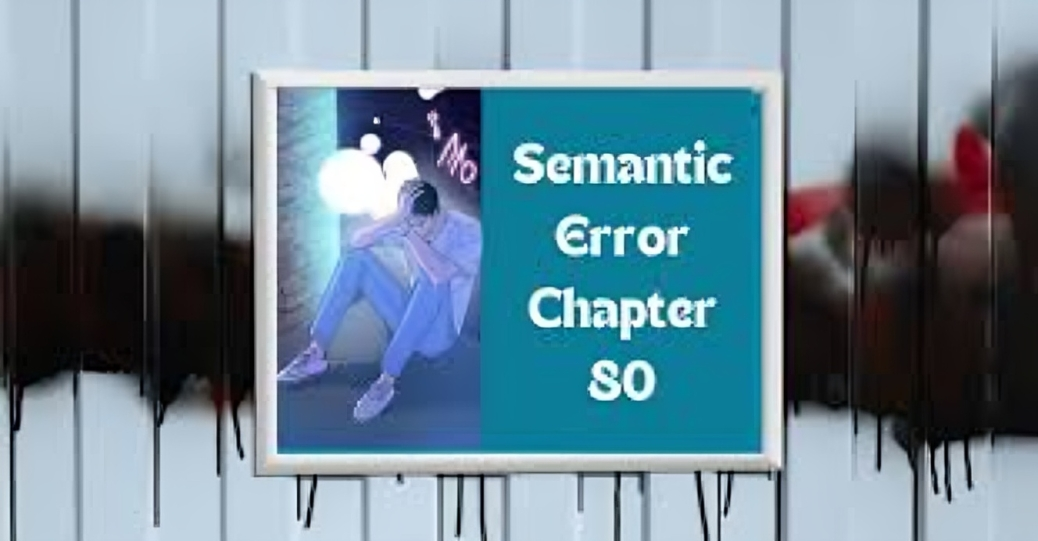Introduction to Chapter 80 and its significance in entertainment industry
Welcome to a world where the magic of entertainment meets the precision of language – Chapter 80, a critical juncture that can make or break the impact of your favorite movies, TV shows, and music. In this blog post, we delve into the intricate realm of semantic errors lurking within Chapter 80 and explore their profound effects on shaping our viewing and listening experiences. Buckle up as we uncover the hidden gems behind the scenes!
What are Semantic Errors?
Semantic errors refer to mistakes in meaning or interpretation that occur in various forms of entertainment media, such as movies, TV shows, and music. These errors can range from inconsistencies in character behavior to inaccuracies in historical facts or scientific concepts presented within the content.
In Chapter 80 of any entertainment piece, semantic errors can disrupt the audience’s suspension of disbelief and immersion into the storyline. They can lead to confusion among viewers or listeners when elements do not align logically or thematically within the narrative.
Identifying semantic errors is crucial for creators and producers to maintain coherence and authenticity in their work. By addressing these issues early on during script development or production stages, they can enhance the overall quality and impact of their content on audiences.
Understanding semantic errors allows for a more refined approach towards crafting compelling narratives that resonate with viewers on a deeper level.
Types of Semantic Errors in Chapter 80
In Chapter 80 of entertainment media, semantic errors can vary in their nature and impact. One common type is inconsistency in character traits or storylines, where a character’s actions do not align with their established personality. This dissonance can confuse viewers and disrupt the narrative flow.
Another type of semantic error is cultural inaccuracies, where details regarding customs, language, or traditions are misrepresented. These mistakes can alienate audiences who are familiar with the culture being portrayed.
Moreover, factual inaccuracies such as historical discrepancies or scientific impossibilities can also detract from the believability of the storyline. Viewers may find it challenging to immerse themselves in the content if these errors persist throughout.
Additionally, linguistic errors like incorrect word usage or awkward phrasing can hinder effective communication between characters and result in misunderstandings among viewers. Such mistakes may lead to confusion or misinterpretation of key plot points.
The Negative Impact of Semantic Errors on Entertainment Industry
Picture this: you’re watching a thrilling action movie, fully immersed in the storyline and characters. But suddenly, a semantic error pops up – an anachronistic prop in a historical setting or a character’s sudden change in backstory without explanation. These seemingly small slip-ups can jolt viewers out of their suspension of disbelief, disrupting the magic of storytelling.
Semantic errors not only detract from the audience’s enjoyment but can also damage the credibility and integrity of the entire production. Inconsistencies in details or logic can lead to confusion and frustration among viewers, impacting their overall perception of the entertainment piece.
Moreover, in today’s age of social media and instant feedback, even minor semantic errors can quickly spiral into widespread criticism and negative backlash online. This negative buzz can tarnish the reputation of filmmakers, showrunners, or musicians involved in creating that media content.
Ensuring accuracy and consistency in storytelling is crucial for maintaining audience engagement and loyalty within the competitive landscape of the entertainment industry.
Case studies and examples of semantic errors in popular movies, TV shows and music
Let’s delve into some intriguing case studies and examples of semantic errors in the realm of entertainment. In a well-known movie, a character suddenly switches personalities without any explanation, leaving viewers confused and disconnected from the storyline. This type of inconsistency can disrupt the audience’s emotional engagement with the film.
In a popular TV show, an anachronistic reference to a modern-day event occurring in a historical period piece can jolt viewers out of their suspension of disbelief. Such blunders undermine the authenticity and credibility of the story being told.
Moreover, in music lyrics, using contradictory or nonsensical phrases can muddy the intended message and diminish the impact of the song on listeners. These semantic errors can dilute the lyrical depth and resonance that music strives to evoke.
By examining these real-life instances, we see firsthand how semantic errors have tangible repercussions on audience perception and enjoyment across various forms of entertainment media.
How do audiences perceive semantic errors?
Audiences are highly perceptive when it comes to semantic errors in entertainment media. Even the slightest inconsistencies can disrupt their immersion in a movie, TV show, or song. These errors can range from factual inaccuracies to timeline discrepancies, causing viewers to question the credibility of the content.
When audiences encounter semantic errors, it can lead to confusion and frustration. They may lose trust in the storyline or feel disconnected from the characters and plot. In some cases, these mistakes become a topic of discussion among viewers, impacting how the piece of entertainment is perceived overall.
Audiences today are more vigilant than ever, quick to spot even minor slip-ups that creators might overlook. With social media platforms providing a space for instant reactions and critiques, semantic errors can quickly gain attention and potentially harm the reputation of a production.
In essence, audience perception of semantic errors plays a crucial role in shaping their enjoyment and engagement with entertainment content.
Strategies to avoid or minimize semantic errors in entertainment media
When it comes to creating entertainment media, paying attention to semantic errors is crucial for ensuring a seamless and enjoyable experience for the audience. To avoid or minimize these errors, creators should start by conducting thorough research on the subject matter they are portraying. This includes understanding cultural nuances, historical context, and language intricacies.
Another effective strategy is to have multiple rounds of editing and proofreading by individuals who can provide fresh perspectives. Collaborating with experts in relevant fields can also help in identifying and rectifying any potential semantic errors before the final product reaches the audience.
Moreover, maintaining consistency throughout the creative process is key. From scriptwriting to production design to post-production, ensuring coherence in storytelling elements can prevent semantic discrepancies from arising.
Seeking feedback from test audiences or focus groups can offer valuable insights into how different viewers interpret and react to the content. By implementing these strategies proactively, creators can elevate their work while minimizing semantic errors that may detract from its impact.
Conclusion: Importance of addressing semantic errors for a successful and impactful piece of entertainment.
In the fast-paced world of entertainment, where every detail counts and audience engagement is crucial, addressing semantic errors holds significant importance. By understanding the impact of semantic errors in Chapter 80 and beyond, creators can elevate their work to new heights of success and impact.
Ensuring that content is free from semantic errors not only enhances the overall quality of a production but also showcases professionalism and attention to detail. Audiences are becoming increasingly discerning, quick to spot inconsistencies or inaccuracies that can detract from their viewing or listening experience.
By implementing strategies to avoid or minimize semantic errors, such as thorough editing processes, fact-checking procedures, and attention to detail during production phases, creators can deliver seamless and immersive entertainment experiences that captivate audiences and leave a lasting impression.
By recognizing the significance of addressing semantic errors in entertainment media, creators can set themselves apart in a competitive industry landscape and deliver truly memorable content that resonates with viewers on a profound level.














